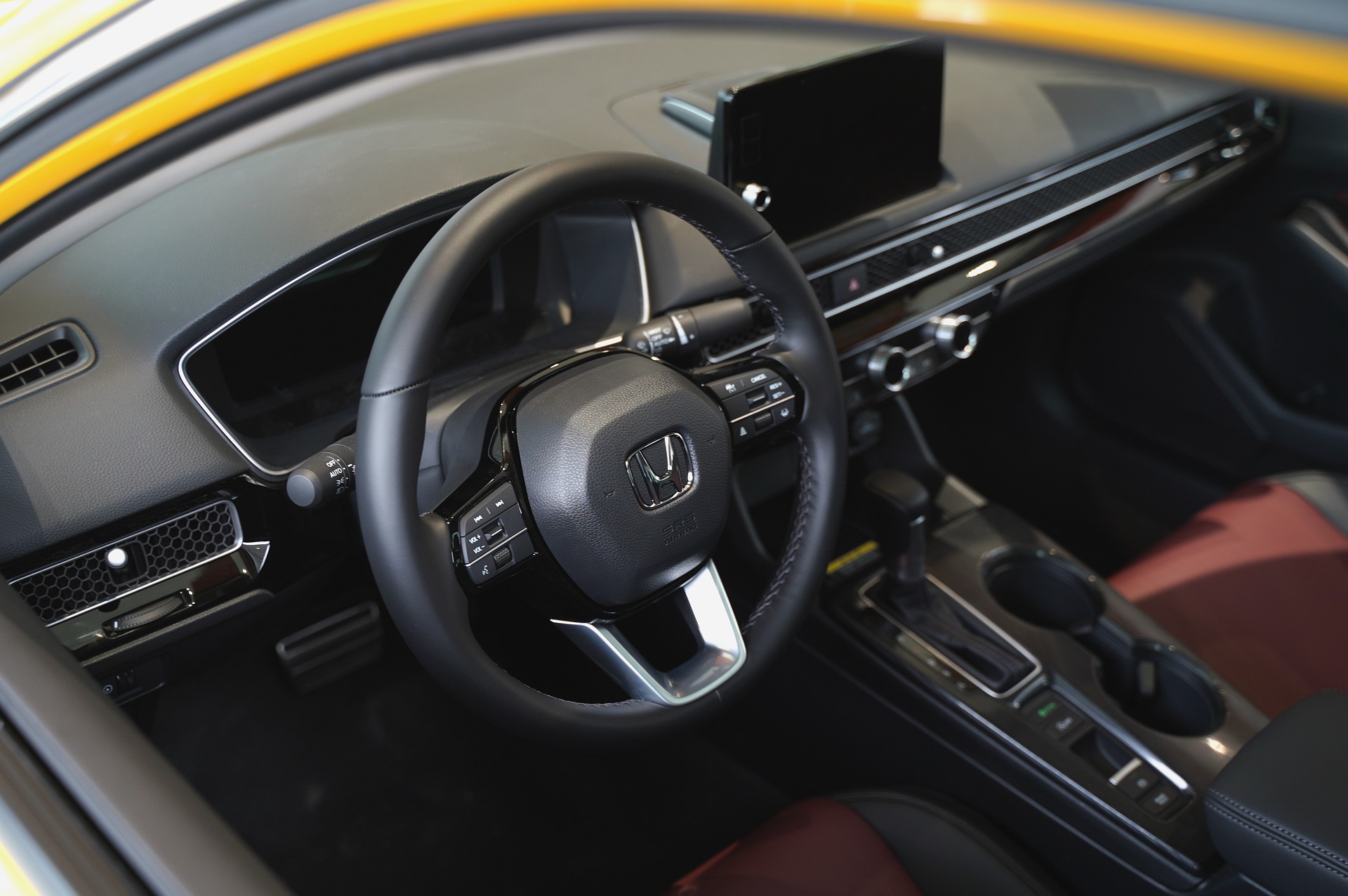If you drive a Honda or certain other vehicles — particularly many foreign economy makes — you may have discovered that you have a CVT automatic transmission. While this type of transmission offers multiple technological advantages over conventional transmission mechanisms, there are some negatives associated with it too. Here’s what you need to know about CVT transmission so you can get the best performance from your car or sport utility vehicle.

Image by LIN LONG from Pixabay
What Is CVT Transmission?
Often dubbed a “shiftless,” “single-speed,” or “stepless” transmission, CVT transmission stands for continuously variable transmission. Rather than moving through various gears like the style of transmission you may be more familiar with, a CVT transmission goes smoothly through a virtually unlimited set of gear ratios as you drive. It’s therefore considered a more flexible type of transmission with no worries about changing angular velocity, which determines how fast the wheels can move.
Believe it or not, early prototypes of CVT transmissions were developed by Leonardo Da Vinci in the 15th century. The continuously variable transmission, which typically uses a pulley system rather than gears with teeth, was ultimately patented by Daimler and Benz in the late 1800s, but it wasn’t widely utilized in vehicles until the end of the last century. Now, many vehicle models use this type of transmission.
What Are the Advantages of CVT Transmission?
The use of CVT transmission became more common largely because of its smooth feel and quick shifting that gives drivers improved responsiveness. You can probably imagine this is helpful when merging into fast-moving highway traffic, for example.
This kind of stepless transmission also affords users better fuel economy because there is no time wasted waiting to shift up or down, when fuel consumption might be needlessly excessive. Saving on gas usage, even in minute amounts, can add up over the course of a regular commute or cross-country trip.
In most vehicles, driving uphill is also easier with a CVT transmission with no hard shifting and no struggle for the transmission to find the proper gear ratio. This is worth considering if you do a lot of driving where the elevation climbs.
What Are Some CVT Transmission Problems or Disadvantages?
“Is CVT automatic transmission reliable?” is a question we get quite often from our clients. It’s fair to ask, as there are indeed some issues with CVT transmissions.
In general, CVT transmissions don’t last as long as conventional versions. This is unfortunate, as they are also more expensive to repair or replace. The longevity and cost of these transmission systems are by far their biggest downside.
You won’t find CVT transmissions in high-performance vehicles or sportscars because they can’t manage the higher horsepower. Also, some people don’t like the lack of sound and clear gear shifting that comes with these transmissions, as they’re used to the auditory cues of a more conventional transmission.
Does the Honda Civic Have CVT Transmission?
You will frequently find a CVT transmission in Honda vehicles, including the popular Civic and Accord models. Honda Civic CVT transmission problems and issues with Accords are not rare, although they are less common as CVT technology has improved.
If you experience these signs of CVT transmission problems (or observe them in a used vehicle you’re thinking of buying), it’s time to talk to your transmission expert:
- Slow shifting from one gear into another
- Slipping acceleration or momentary feeling of power loss
- Loud humming or whining, especially when accelerating
- Jarring or jolting when shifting gears
- Fluctuating RPMs when driving at a steady speed
- Dirty transmission fluid on inspection
Can You Buy a Honda Accord Without CVT Transmission?
Because of reports of Honda Accord CVT transmission problems, some buyers would prefer to purchase a model without a CVT transmission. More and more, it’s hard to find vehicles that don’t have CVT transmissions.
Therefore, it’s important to inquire about the transmission from the seller, whether it’s a dealership or a private party. Often a dealer can get an Accord or a Civic for you without the CVT transmission, but it may have to be special ordered, and availability may depend on the style (sedan, coupe, hatchback, etc.). There are some online resources that can help you narrow down your search too.
When purchasing a used Honda, you may have to check the VIN to get more details about the transmission. It’s worth noting that it might say “zero gears” or “gears: 0” if the vehicle has a CVT transmission.
Of course, your mechanic can check out the transmission for you if you’re purchasing a previously owned car or sport ute. A pre-purchase inspection is always a smart idea anyway before investing in a used vehicle.
Finally, regardless of whether you have a used or brand new Honda or other vehicle with a CVT transmission, it’s vital to stay current with maintenance, e.g., fluid and filter replacement as per the manual. If you notice any problems, or check-engine lights that you suspect are related to the transmission, it’s important to visit a shop where the technicians are transmission experts. You may be able to avoid a major repair or replacement expense if you attend to small problems with the CVT transmission before they morph into bigger ones.

